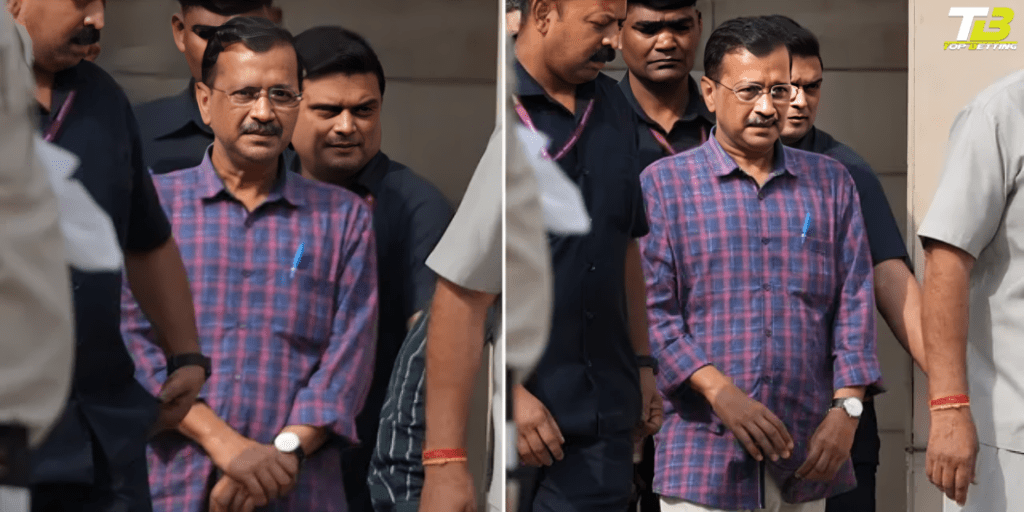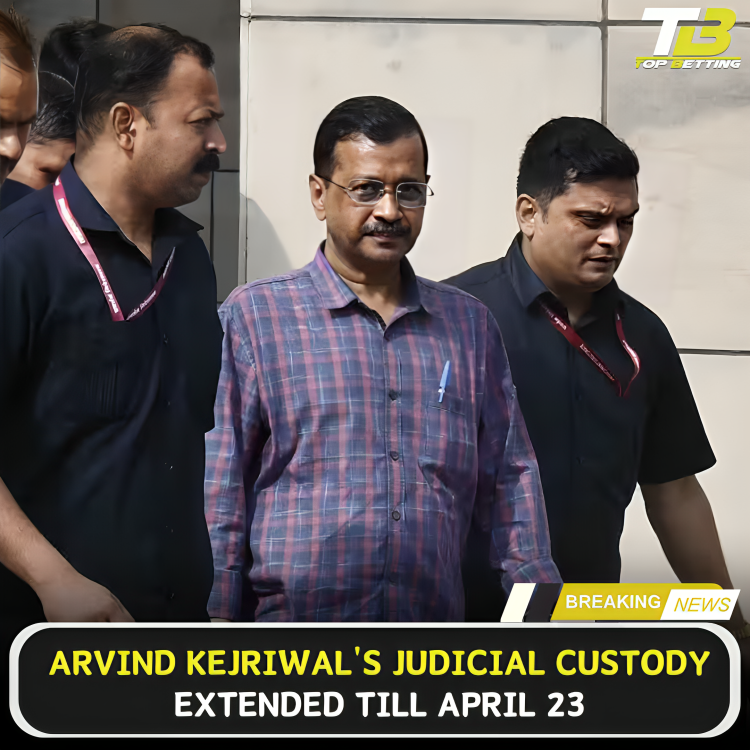
Arvind Kejriwal judicial custody extended
After his Enforcement Directorate (ED) remand expired, Arvind Kejriwal was placed in judicial custody and is currently being held at Tihar jail.
In relation to the excise policy issue, a Delhi court on Monday prolonged Chief Minister Arvind Kejriwal’s judicial custody till April 23.
Arvind Kejriwal used a video conference to appear in court. The co-accused K Kavitha’s judicial detention has also been extended until April 23, the court observed.
The 55-year-old convenor of the Aam Aadmi Party is now being held in Tihar jail following his transfer from Enforcement Directorate (ED) confinement to judicial custody. The ED detained Kejriwal on the evening of March 21 after the high court declined to shield him from the federal government’s use of coercion.
The Supreme Court had earlier in the day requested an answer from the ED over a plea that Kejriwal had submitted contesting his arrest. The ED was instructed to respond by April 24 by the top court panel of Justices Sanjiv Khanna and Dipankar Datta, who also announced that the case would be heard the week of April 29.
The Delhi High Court affirmed the AAP convenor’s arrest on April 9, stating that Kejriwal had ignored nine summonses and had not to cooperate with the investigation, leaving the agency with “little” options.
Arvind Kejriwal, the Chief Minister of Delhi and leader of the Aam Aadmi Party (AAP), has been embroiled in a legal battle that has resulted in his judicial custody being extended until April 23. This development has sparked widespread discussion and debate across the political landscape, with opinions divided on the implications and significance of Kejriwal’s continued detention.
The legal saga involving Kejriwal stems from a defamation case filed against him by a Delhi police officer, alleging that the Chief Minister made defamatory remarks against him during a political rally. Kejriwal’s remarks, which were purportedly made in the heat of the moment, have landed him in hot water, leading to a series of legal proceedings that have kept him entangled in the judicial system.
The decision to extend Kejriwal’s judicial custody until April 23 has raised questions about the fairness and impartiality of the legal process. Critics of the ruling argue that it is politically motivated and designed to silence Kejriwal’s dissenting voice, while supporters maintain that it is a necessary step to uphold the rule of law and ensure accountability among public officials.
Kejriwal, a vocal critic of corruption and malfeasance in government, has long been a thorn in the side of the political establishment. His unrelenting crusade against corruption and his willingness to challenge the status quo have made him both a hero and a villain in the eyes of the public, depending on one’s political allegiances. who speak truth to power be allowed to flourish? The answer to these questions will depend on the actions of both the government and the people, as they navigate the complexities of a rapidly changing political landscape.
The extension of Kejriwal’s judicial custody has also reignited discussions about the state of democracy and freedom of expression in India. Critics argue that the ruling sets a dangerous precedent and sends a chilling message to political dissidents and activists who dare to speak truth to power. They point to a broader trend of increasing authoritarianism and intolerance of dissent under the current government, citing a crackdown on civil liberties and a shrinking space for democratic debate.
On the other hand, supporters of the ruling contend that Kejriwal’s detention is a necessary s tep to uphold the rule of law and maintain public order. They argue that no one, regardless of their position or political affiliation, should be above the law, and that Kejriwal must be held accountable for his actions like any other citizen.
In the midst of this heated debate, it is important to remember the fundamental principles of justice and fairness that underpin the rule of law. Regardless of one’s personal opinions of Kejriwal or his politics, he is entitled to due process and a fair trial. The judiciary must remain independent and impartial, free from political interference or influence, in order to ensure that justice is served.

Looking ahead, the extension of Kejriwal’s judicial custody raises important questions about the future of democracy and governance in India. Will dissent continue to be stifled and silenced, or will the voices of those who speak truth to power be allowed to flourish? The answer to these questions will depend on the actions of both the government and the people, as they navigate the complexities of a rapidly changing political landscape.
In conclusion, the extension of Arvind Kejriwal’s judicial custody until April 23 has sparked intense debate and speculation about the implications for democracy and freedom of expression in India. While opinions may be divided on the significance of this development, one thing is clear: the rule of law must prevail, and justice must be served, regardless of one’s political affiliations or beliefs.











